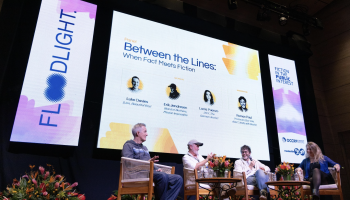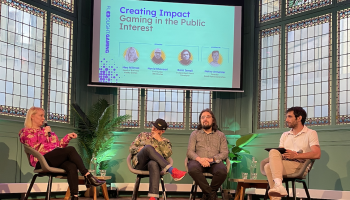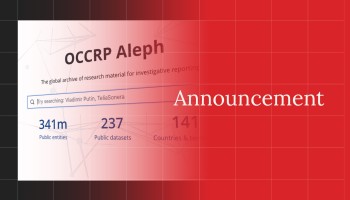All Announcements
OCCRP and Anti-Corruption Data Collective Launch New Initiative to Fight Transnational Corruption
Illicit Finance Data Lab will strengthen cooperation between investigative journalists, academic researchers, and data...
Hungary’s “Sovereignty Protection Office” Publishes Smear Report on OCCRP
A new Hungarian government report filled with false claims and conspiracy theories targets the Organized Crime and...
Open Call for Independent Ukrainian Investigative Media Subgrant Proposals
The Organized Crime and Reporting Project (OCCRP) is issuing a call for proposals to all Ukrainian non-profit investigative...
Floodlight Gaming Connects Investigative Reporting to Game Developers for Adaptation Into Interactive Media Experiences
“Hunting the Hunter” wins top award at inaugural Floodlight Investigative Journalism Gaming Summit
Aleph Pro: Frequently Asked Questions on the Future of OCCRP’s Investigative Data Platform
Aleph Pro is the next iteration of OCCRP’s investigative data platform, launching in December 2025. This FAQ explains what’s...
"Still, We Report": An Open Letter From OCCRP's Editor in Chief
On World Press Freedom Day 2025, OCCRP is highlighting how journalists in our network persevere in the face of attempts to...
OCCRP Announces a New Chapter for Its Investigative Data Platform — Aleph Pro
We've been rebuilding Aleph from the ground up, and will launch Aleph Pro in October 2025, combining a modern technical...
OCCRP Briefing — Corruption Crossroads: How the U.S. Retreat Affects Policy, Compliance, and Accountability
OCCRP convenes leading anti-corruption experts to discuss recent developments in the U.S. and the effects for the rest of...








